Writer Amanda Christmann
Photography Courtesy of Brian Morrison
[dropcap]I[/dropcap]t may seem like a Hollywood cliché: U.S. Marine veteran returns home from combat to face hidden battles within his own mind. He drinks too much, gets in trouble with the law and finds salvation after experiencing his own dark night of the soul.
Except this isn’t Hollywood. Jonathan Hancock’s story is much more real; and he’s still writing the ending.
Six years ago, Hancock began a 5,800-mile journey that would not only begin to heal his own wounds but that continues to help other veterans to understand and adapt to life after combat.
Hancock’s journey began in 2004 when, as a young Marine, he was deployed to Iraq as a member of the 2nd Battalion, 4th Marine Regiment — nicknamed The Magnificent Bastards. His unit fought in the first Battle of Ramadi and suffered more casualties than any other infantry battalion.
Two hundred men in his 1,000-man unit were killed or wounded. For those who survived, the battle didn’t end when they finally flew home.
Hancock’s story could have ended badly — very badly. In fact, it almost did. He returned from the horrors of combat and tried to slide back into his old life. He resumed college and did well for a short time before alcohol consumed him and trouble found him. After a suicide attempt, he became desperate.
“I had to lay myself naked on the altar of humility,” Hancock says.
And so he went for a walk.
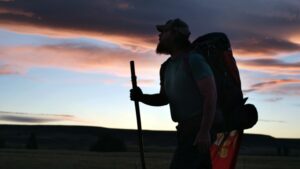


September 11, 2015, with 70 pounds of gear on his back, Hancock left his Maryland home in the middle of the night to find the men he served with and Gold Star families of those he’d lost. He didn’t know what he expected to find, but along the way, he not only found himself; he found a sense of purpose and direction that he thought had been destroyed by bullets and bombs.
His journey would take him on a meandering trail across the country, down dirt roads and solitary paved highways. He camped where he could — sometimes stealthily — and only occasionally checked into a motel for a warm shower.
In Slidell, Louisiana, he met Brian Morrison, who graduated from the same high school. Morrison began to film Hancock’s trek and put together an award-winning documentary called “Bastards’ Road.”
In his hard-hitting film, Morrison was able to capture the complex emotions that Hancock, his fellow Marines and their loved ones experienced. From behind his lens, he also documented a remarkable change in Hancock.
As Hancock’s beard and hair grew wilder and his body underwent a healthy metamorphosis, his eyes became brighter and his smile became wider as, pound by pound, an invisible weight disappeared from his shoulders.
“Ultimately, I learned that I am absolutely stronger than I actually know,” Hancock says. “I have a massive amount of courage I can rely on that I previously thought wasn’t there. It was cathartic for me, but it also helps others. Fortunately, we’ve also got this film to continue to reach veterans who need this message.”
It wasn’t only physical pain he endured.
“When I started to process everything, it was a roller coaster,” he explains. “It’s basically cognitive therapy with movement, 20–30 miles a day.”
In total, he knocked on the doors of 75 people, including 11 Gold Star families, before completing his journey in an emotional homecoming of sorts — yet better this time — at Camp Pendleton. He was met by fellow Marines and Gold Star families who were not only moved by his walk, but who understood what it was like to return to civilian life after combat.
Missing were those who fell in combat, as well as seven members of his unit who died from suicide upon returning home. Though not there in person, their lost lives became part of Hancock’s greater purpose: to provide resources and support to stop the alarming number of suicides among veterans.
Today, Hancock is a new man, thanks in part to nearly 6,000 miles of introspection. Now a Phoenix resident, he heads his own nonprofit organization, called “Bastards’ Road Project,” taking other veterans on life-changing excursions to encourage them to talk about their experiences and to let those they love inside.
“You have to call each other and continue to seek out connections,” he says. “We don’t get through anything alone in combat, so why do we think we have to get through it alone on the civilian side?
“It doesn’t matter if it has been two weeks or 10 years. No time has passed as soon as you get on that phone.”
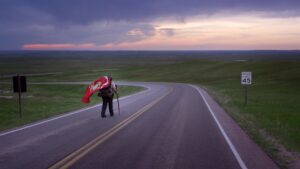


Bastards’ Road Project’s mission, in his words, is: “Walk long distances, figure some sh!t out.” And it seems he has done just that.
Hancock came to Arizona in 2017 to attend Thunderbird School of Global Management, where he earned his degree in 2019.
Earlier this year, he married his wife, Tiffany. His son, whose touching love for his dad is evident in the documentary, will be 11 years old next month. He lives in North Carolina with his mother, but visits Phoenix regularly. With any luck, he says with a gleam, his family will soon grow.
Hancock’s newfound purpose is to spread the message he learned on his own — the message that saved his life.
“It’s time to start understanding veterans instead of allowing yourself to be force-fed the false narrative by Hollywood and the news,” he says. “If you truly care, you must start providing veterans with opportunities and start volunteering with veterans’ nonprofits to experience how veterans are really helping each other.
“For veterans, it’s imperative that we begin to open up. We don’t exist in the age of Vietnam. We don’t exist in a ‘don’t ask, don’t tell’ society. We don’t exist in a country that restricts what we can say. It is incumbent upon vets to take the first step and reach out to each other.
“There aren’t many ways we can be hurt doing that, but there are many ways that it can help.”
And for Hancock, the journey toward healing, hope and purpose will continue … one step at a time.

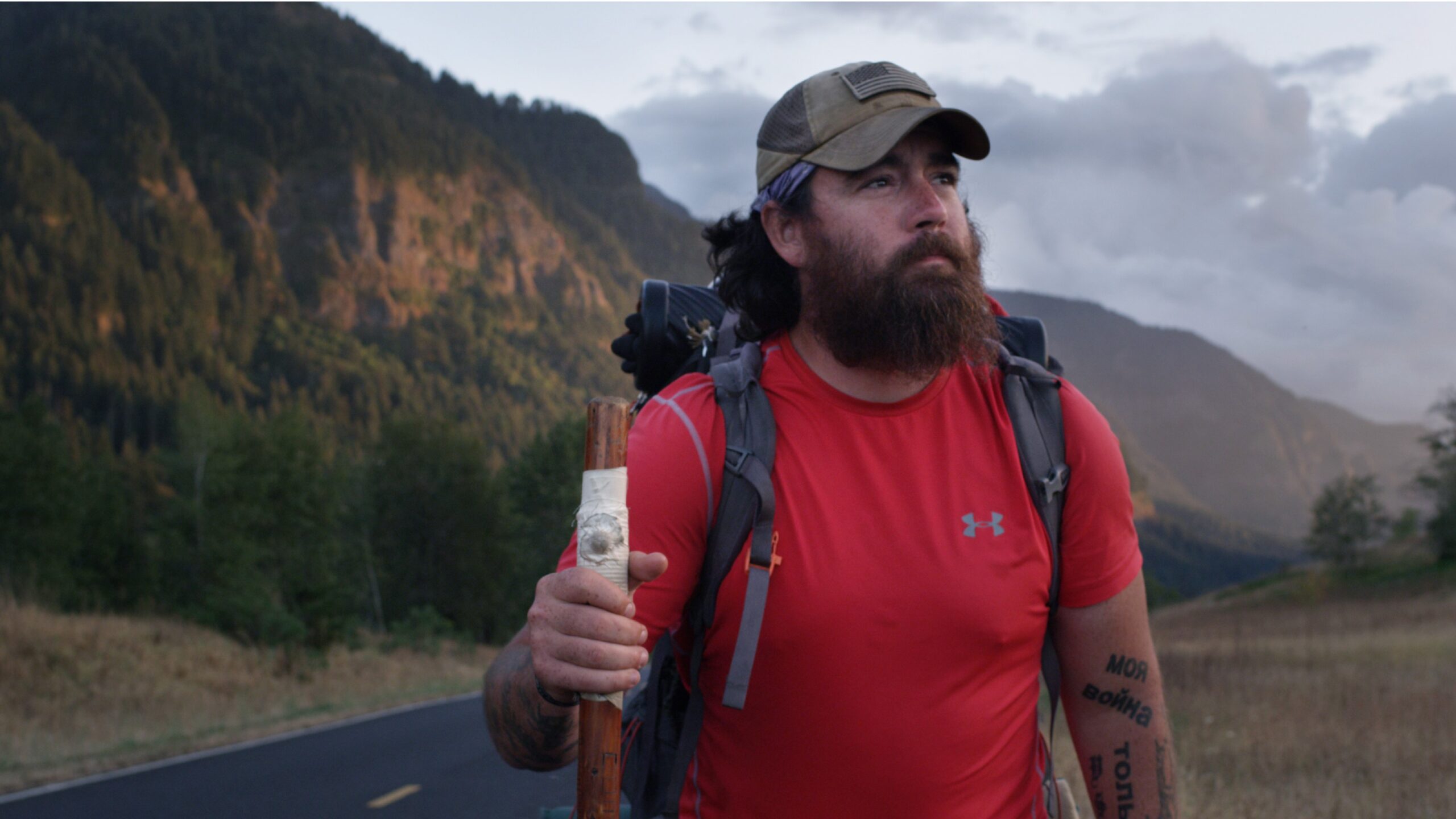


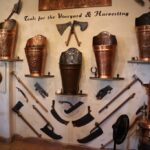

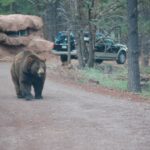
Comments by Admin